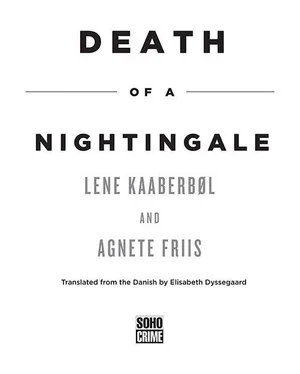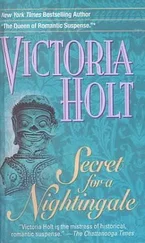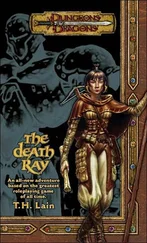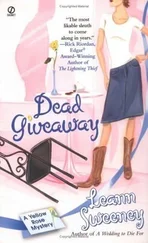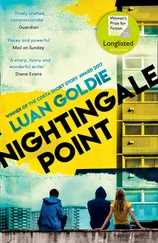Lene Kaaberbol - Death of a Nightingale
Здесь есть возможность читать онлайн «Lene Kaaberbol - Death of a Nightingale» весь текст электронной книги совершенно бесплатно (целиком полную версию без сокращений). В некоторых случаях можно слушать аудио, скачать через торрент в формате fb2 и присутствует краткое содержание. Год выпуска: 2013, ISBN: 2013, Издательство: Soho Crime, Жанр: Старинная литература, на английском языке. Описание произведения, (предисловие) а так же отзывы посетителей доступны на портале библиотеки ЛибКат.
- Название:Death of a Nightingale
- Автор:
- Издательство:Soho Crime
- Жанр:
- Год:2013
- ISBN:1616953047
- Рейтинг книги:5 / 5. Голосов: 1
-
Избранное:Добавить в избранное
- Отзывы:
-
Ваша оценка:
- 100
- 1
- 2
- 3
- 4
- 5
Death of a Nightingale: краткое содержание, описание и аннотация
Предлагаем к чтению аннотацию, описание, краткое содержание или предисловие (зависит от того, что написал сам автор книги «Death of a Nightingale»). Если вы не нашли необходимую информацию о книге — напишите в комментариях, мы постараемся отыскать её.
Death of a Nightingale — читать онлайн бесплатно полную книгу (весь текст) целиком
Ниже представлен текст книги, разбитый по страницам. Система сохранения места последней прочитанной страницы, позволяет с удобством читать онлайн бесплатно книгу «Death of a Nightingale», без необходимости каждый раз заново искать на чём Вы остановились. Поставьте закладку, и сможете в любой момент перейти на страницу, на которой закончили чтение.
Интервал:
Закладка:
14:13.
She knew that it wasn’t always the obvious crises that made people crack. An Iranian man who had survived multiple arrests, torture and threats without breaking down had completely lost it and had tried to smash a radiator one evening in the Coal-House Camp’s recreation room. Afterward he explained, crying and incoherent, that it was because the noise from a defective valve reminded him of machine-gun fire.
But you haven’t been tortured, she reminded herself. So how about turning down the drama a notch or two?
Outside on Jagtvejen traffic glided by in its lazy Sunday rhythm. A mother passed her with two carnival-costumed children, one in a stroller, the other lagging a few feet behind on tired cat paws.
For the rest of the school carnival, Nina had barely been able to keep it together. She had smiled and clapped for Anton’s sake. He had been so caught up in the barrel-smashing and apple-bobbing and all the other hullaballoo that he hadn’t noticed anything. But Ida had immediately spotted that something was wrong.
“What have you done now?” she asked, lashing out at Nina with all the old hostility that had seemed to be receding.
“Ida!” said Morten. “Speak nicely to your mother.”
Nina felt a surge of wobbly and yet more destabilizing gratitude to him for defending her, even if the defense did sound a bit tired and hollow because he basically agreed with Ida. As soon as the bottom had fallen out of Anton’s barrel, releasing oranges in all directions, she had kissed Super Mario on his cap and raced out the door.
Would you take my child, Natasha?
And Natasha answered her, a whispering voice somewhere inside: Why not? You took mine.
“No,” Nina protested. “You asked me to take care of her. That’s what I’ve done. Just that.” But it was a lie, a big, fat lie. When the gates to Fejøgade had been shut in her face, banishing her from what right now seemed a perfect Eden, though it hadn’t been so at the time … in that moment of despair and rejection, it had been Rina she had clung to. There had been so many nights when she had slept next to Rina ostensibly “to keep an eye on that asthma,” but really because her own bed in the new-divorcée apartment had been unbearably lonely and impossible to sleep in.
So no, she couldn’t go to Fejøgade. But the thought of returning to Søren’s tidy suburban home made her panic accelerate. Magnus was there, she thought. Magnus would have to manage a little longer. He had a caring but more professional relationship to Rina.
She could go get the asthma medicine. Yes, that’s what she would do. They had already used more than they should have, and they couldn’t afford to run out. The drive back and forth would consume over an hour of unruly, fundamentally un-checkable time, and by then she might have calmed down a bit.
She started the engine again and headed for the Coal-House Camp. The time was 14:19.
UKRAINE, 1935
Stomp, stomp, stomp.
Olga stared down at the frozen wheel tracks as she walked. It wasn’t all that far from the school to their old house on the outskirts of the village, certainly not anywhere near as far as it had been to Grandfather’s farm up in the hills. And yet it felt farther.
Her heart beat hard and fast under her coat, and she increased her tempo, forced herself to breathe slowly and deeply, forced herself not to run. The heavy white blanket of snow that had fallen in the night hushed all sound, but she still caught most of it. Oxana’s steady, confident steps to her right. A door that opened and closed in the house next to the cooperative shop. A quiet conversation between two men over by the sawmill. She could hear the way they stomped their feet and clapped their hands hard together to stave off the cold. Their cigarette smoke hung in the ice-cold air like a faint bluish veil.
They walked quickly. Olga because she was afraid. Oxana more likely because she was angry.
COMRADE SEMIENOVA LOVEDOxana. Leda and Jegor loved Oxana, and Mother and Kolja loved her too. But that winter it was as if everyone else had begun to hate her.
It had begun with Sergej’s stone, the day the GPU had come for Fedir and the rest of his family. And after that the hatred had grown. Although Olga caught only a sort of echo of it, as if the hostility bounced off Oxana and hit her instead, she felt it as a resistance in her body that made it difficult to move and breathe. It showed in all the little gestures, she had discovered. Men stuck their hands in their pockets and turned away. Conversations ceased. Smiles faltered and eyes were averted when Oxana and she walked by. People didn’t yell or call names anymore; the hatred was in the silence and in the air she breathed into her lungs. So it wasn’t until she was inside, at home with Oxana and Kolja and Mother, that she could breathe freely.
Uncle Grachev’s house had become a dangerous place to pass, because even though Father and he had often argued about who would provide bread and vodka for the old folk, they had had a lot in common and enjoyed drinking and playing cards in the evening. Uncle Grachev was Father’s brother. He had a huge beard and an odd, hiccupping laughter, and he used to pinch Olga and Oxana much too hard on the cheek. Olga had also seen him pinch Mother’s behind when he was really drunk and had lost both kopeks and rubles, but Mother had never paid much attention, and luckily Grachev had his own wife, who was named Vira and was big and strong as an ox and ruled over both Grachev and the three large cousins with a firm hand. Their house was also big enough that Grandfather and Grandmother Trofimenko could live there, and when Mother and Father and Olga and Oxana and Kolja had first come to Mykolayevka in the fall, Vira and Grachev had invited the whole family to celebrate the first harvest after the great hunger. They had had honey cakes and tea and had listened to Cousin Fyodor’s stories about his time in the army in Afghanistan. To think that the Afghan women were dressed in tents and were only allowed to see the world through a mesh of horsehair, while the men sat around smoking water pipes! Unimaginable wonders like that were blissful when served with tea and cake.
Olga missed Vira and Fyodor and even Grachev, in spite of the cheek-pinching, but since Father’s death their house had been closed to Olga as well as Oxana. Vira pursed her lips together when they met her in the street, and the two youngest cousins, Vitja and Pjotr, ran between the houses with Sergej and threw hard, little icy snowballs at Olga and Oxana and even at little Kolja when he came along. Once Vitja had pushed Oxana into the open gutter, so she had fallen on the layers of frozen shit from the Lihomanovs’ house.
Olga and Oxana always walked by as quickly as they could, making sure not to expose themselves unnecessarily; they were especially careful with their throats, eyes and cheeks, which they covered as best they could by bending their heads, hunching their shoulders and pulling their kerchiefs close around their faces. It was no longer a good idea to stop and warm their hands or chat with the other girls. Even Leda and Elizaveta, who, like Oxana, were eager young pioneers, steered clear of them in the open street.
The worst thing was that Olga liked Vitja and Pjotr and Fyodor and Grachev and Jana. Even now, even when they were being so awful to her. Last summer, before all the trouble with Father and the widow, she and Pjotr had gone down to the river together to fish several times. Once in a while they caught one of the fat barbel, a fish that could get so big, it required all the strength and concentration an eleven-year-old boy could muster to drag it to shore. Other times they had to make do with small fry that Mother made into fish soup with the head, tail, eyes, guts and the lot.
Читать дальшеИнтервал:
Закладка:
Похожие книги на «Death of a Nightingale»
Представляем Вашему вниманию похожие книги на «Death of a Nightingale» списком для выбора. Мы отобрали схожую по названию и смыслу литературу в надежде предоставить читателям больше вариантов отыскать новые, интересные, ещё непрочитанные произведения.
Обсуждение, отзывы о книге «Death of a Nightingale» и просто собственные мнения читателей. Оставьте ваши комментарии, напишите, что Вы думаете о произведении, его смысле или главных героях. Укажите что конкретно понравилось, а что нет, и почему Вы так считаете.
